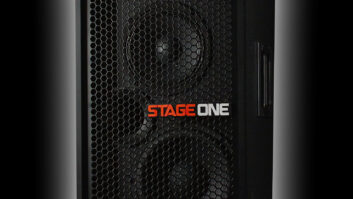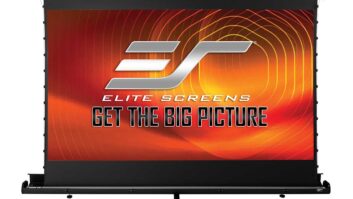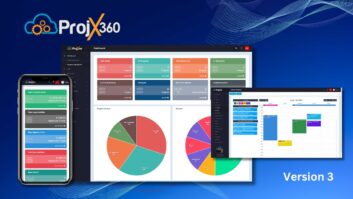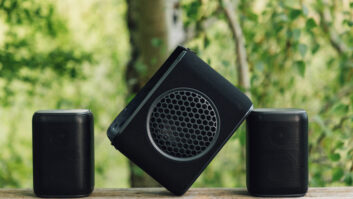LAS VEGAS -Still more companies will enter the Internet audio portable market at CES, where dealers will find expanded selections from companies such as Aiwa and RCA, more models supporting multiple codecs, and more models using disc media instead of more expensive flash memory.
Dealers will also find a greater selection of headphone CD players, shelf systems, component CD players and DVD players that play back MP3-encoded CDs, as will some of the first CD boomboxes.
Companies with their first flash-memory portables include GPX, JVC, Spectra (under the Jensen brand) and Panasonic, which showed mock-ups at last year’s show. Companies introducing their first multicodec portables include Aiwa, Pine and Samsung.
Companies offering their first headphone portables that play MP3 discs include Aiwa, CMC Magnetics, Coby and Spectra. MP3-decoding boomboxes will be displayed by Spectra and RCA.
I-Jam will show its first portable that plays back PocketZip discs, joining Iomega and Sensory Science in that niche.
DataPlay was expected to show the first headphone portables using its 500MB and 250MB write-once recordable discs. The company said the first products will ship in September. (see p. 9).
The frenzied product developments are occurring despite retailers’ lowered expectations, several suppliers said.
One major CE manufacturer claimed that “everyone recognizes the business hasn’t progressed to where they thought it would be, but everyone’s pleased with the business, given the per unit average price of more than $200 … Everyone is very optimistic.”
For many retailers, this is their first year in the business, and it’s all plus business to them, the manufacturer added. “Twelve months ago, Internet distribution was the majority of the business because there was no retail distribution,” he noted. “Today it’s not a majority.”
This supplier estimates a doubling of unit sales for last year to 500,000 and expects another doubling in 2001. Some companies have higher estimates and forecasts, he noted.
JVC audio VP Karl Bearnarth also said the market didn’t meet CE retailer expectations, perhaps because so many are being sold through computer stores and chains.
However quickly sales accelerate, retailers will have a lot more product options in 2001. Here’s what dealers will find at CES:
Aiwa: In carrying over its first flash-memory MP3 portable shipped in late 2000, Aiwa will introduce its first multiple-codec flash-memory portable. Also new: its first headphone CD player, CD boombox and shelf system to play MP3-encoded CDs.
Meanwhile, Aiwa will expand its selection of MP3 DVD players with the introduction of four new DVD players, two of which are five-disc models. The company will also add its second car CD player with MP3 playback.
The new flash-memory portable-the SDMI-compliant MM-RX400 at a suggested $400-is due in April with AM/FM tuner, 64MB memory, and MP3 and Windows Media Audio coding and decoding. It can’t be upgraded to support additional codecs.
However, two more flash-memory portables, due in the summer but not on display, will offer one or more additional codecs besides MP3 and WMA, although they, too, can’t be upgraded to add additional codecs. One will feature AM/FM tuner. Additional details were not released.
The headphone MP3-CD portable, the XP-MP3, is due in February and will top out Aiwa’s headphone CD lineup at a suggested $240 with car kit.
The MP3 boombox retails for a suggested $175 when it ships in June with digital tuner, fill-logic cassette, Qsound and remote.
The MP3 shelf system features three-disc changer, motorized front panel and two-way speakers at a suggested $350. It ships in June.
The second car CD player is due in April at a suggested $400. Aiwa will carry over an existing model.
Coby: The company’s first headphone CD player with MP3-disc playback is the MPCD500 with 40-second memory buffer, directory search for music stored in different groups, and targeted everyday retail of $99.95.
The company’s second flash-memory MP3 portable, the MPC400, is only 1.75 x 2.25 x 0.50 inches. It features 32MB embedded memory, one memory slot and an everyday price of $89.95. Details were unavailable.
First International Digital: The Motorola spin-off will expand its iRock selection of flash-memory portables with the 500 and 600 series, which will join the already available 400 series.
The two SDMI-compliant 600 series models, due early January, will ship with MP3 playback but can be firmware-upgraded to support additional codecs. The 680 ships with 64MB MMC card at a suggested $279; the 650 ships with 32MB at an undetermined price.
Both 600 models feature FM tuner, karaoke and voice recorder. Purchasers of the 600s also get storage-locker space on First International’s server at 100MB for 680 users and 50MB for 650 users.
Four 500 series models, which aren’t firmware upgradable, play back only MP3 files. They’re due in the first quarter at an undermined price with interchangeable faceplates. The 530 and 550 ship with 16MB and 32MB MMC cards, respectively, and feature voice recorder. The 540 and 560 also ship with 16MB and 32MB cards, respectively, and feature FM radio.
GPX: The company’s first headphone MP3-CD player features two-line text display at a targeted $129 everyday price. It’s due around March. GPX plans its first flash-memory MP3-only fixed-codec. It’s targeted for June at an expected everyday $149.
I-Jam: The company’s second-generation headphone CD player that plays back MP3- and Wav-file-encoded discs is the IJ-830, due this month at a suggested $149.
I-Jam’s first music portable that plays small PocketZip 40MB discs is the $299-suggested IJ-360, sourced from Iomega. It plays back Windows Media Audio files and supports WMA’s digital-rights-management technology.
A market test planned in Q4 2000 to sell prerecorded copyright-protected PocketZip discs has been delayed until this month, the company said, because it took longer than expected to produce the disks.
Through about 150 Tower and Musicland stores around the country, I-Jam will begin selling $19.98 I-Jam-branded prerecorded music disks, dubbed License Plates (LPs), in retail displays that include the company’s IJ-360. Books on disk will start at about $24.95.
The prerecorded disks will play in any portable player that supports PocketZip disks, WMA and Microsoft’s DRM. More than 20 titles will be available at launch.
Of the big five music companies, EMI Music has agreed to license music for the LP disks-but so far, only two titles: Selena’s All My Hits and Al Green’s Greatest Hits.
Additional content is due from independent record company TVT Records, Christian label Word Records, Random House for book content, and Media Bay for more spoken word.
The test will end in February, followed by another phase running from March to June to deliver additional content and expand distribution to CE stores that also sell music software, I-Jam said.
Jensen: Spectra, which markets Jensen-brand portable audio and shelf systems, didn’t deliver the MP3 flash-memory headphone portable shown last year, but the company will make up for it with a broad launch here at CES.
The products, due in Q2, consist of five flash-memory headphone MP3 portables (priced at expected retails of $79 to $249); three boomboxes that play back MP3 discs (priced at expected retails of $129 to $199); and five headphone CD players that play MP3 discs (priced from $139 to $179).
The flash-memory portables use Smart Cards. One features FM radio.
JVC: The company’s first Internet audio products include a headphone portable that plays MP3 CDs. The XL-PM1 with 40-second memory buffer is due in July at an undetermined price. Alkaline battery life is 22 hours for Redbook CDs and 15 hours for MP3 CDs.
The second product is the XA-SD1 headphone flash-memory portable that stores music on an included removable 64MB SD memory card in the MP3 and AAC formats.
The main unit is 3.2 ounces and comes with a chain so it can be worn around the neck. It’s due in April or May at an undetermined price. At press time, JVC didn’t know whether it would feature a programmable processor for adding other codecs or if it included digital rights-management technologies. It is SDMI-compliant.
JVC said it will keep Internet audio codecs out of shelf systems and home components because it views them as portable technologies whose selling point is letting users carry lots of songs in a convenient way. In home environments, the preference should be toward sound quality, said audio VP Karl Bearnarth.
Kenwood: Some of the company’s new home components will support MP3 playback. Details were unavailable.
Panasonic: The company’s first two flash-memory portables, due in January, will carry the trademarked E-Wear name because of their small size.
Both SDMI-compliant devices support two codecs-AAC and MP3-and Intertrust’s DRM but aren’t upgradable to support additional codecs or DRMs. Both retail for a suggested $399 with included removable 64MB SD memory card.
The SV-SD05, incorporates all electronics in a 1.5-ounce headset. The second model, the SV-SD75, is only 1.78 x 1.2 x 0.6 inches, and it comes with accessories that let users wear it around the neck, around the arm, and on clothes or belts. Half of its face is an LCD screen to display artist and album titles.
Both models use a single AAA alkaline to deliver six hours of playback time but come with rechargeable NiMH battery.
Philips: The company’s second 2x dubbing 3+1 carousel recorder will add MP3 disc playback but no MP3 encoding. In November, Philips began shipping its M55 minisystem with MP3 disc playback at an everyday $299. The company also offers a $199 headphone CD that plays MP3 CDs.
Pine Technology: The company’s first multicodec portable, which can be upgraded to support additional codecs, is the SA6400, due in February at a suggested retail of $299. It ships with support for MP3, Windows Media Audio and AAC codecs. Pine wasn’t sure what digital rights-management (DRM) technologies were supported.
The PC- and Mac-compatible device incorporates voice recorder, embedded 64MB memory, slot for an MMC or SD card and phone-book function. It’s Pine Technology’s first SDMI-compliant device.
RCA: The company will unveil its second shelf system with MP3-disc playback; its first boombox and component CD changer with MP3 disc playback; and its first Internet audio headphone portable in which all electronics are built into the headphones.
The new shelf system, the RS2533, is due in the second half. It will be a lower-powered version of the $399-suggested RS2538, whose shipment was delayed from late 2000 to January 2001. Both feature five-disc changer and CD-R/RW compatibility.
The component five-disc CD changer, the RP8078, is due in the second half with CD Text titling and CD-R/RW compatibility at an undetermined price.
The headphone portable, the RD2208, plays back MP3, Windows Media Audio and Real G2 codecs, comes with 64MB removable memory and features digital FM tuner. It’s due in the second half.
RCA’s boombox, also due in the second half, features memory buffer, digital tuner, remote, multiline LCD display and CD-R/RW compatibility.
Rio: The $279-suggested Rio 800, due in late December or early this month, will be the Sonicblue company’s second portable with programmable processor, enabling many additional codecs to be supported. The first was the Rio 600, already available. Another existing model, the 500, is firmware upgradable to add only Audible’s codec.
The 600 and 800 ship with MP3 and WMA codecs and support for WMA and Intertrust DRMs, a spokesman said. Both feature embedded memory (32MB and 64MB, respectively) whose capacity can be expanded by snapping on 32MB and 64MB Backpacks due at $99.95 and $169.95, respectively. The 32MB model is available; the 64MB model was due by the end of 2000.
One Backpack due sometime in the first half will incorporate an IBM Microdrive hard drive; another due during the half will accept SD and MMC cards. Neither will be shown at CES. Rio has no plans for first-half shipments of a Data-Play Backpack, a spokesman added.
The 800 adds voice recorder.
Samsung: New headphone Internet audio portables include the company’s first multicodec model, which will also feature FM tuner. Details were unavailable.
Sanyo: The company hasn’t shipped flash-memory portables shown at last year’s CES. They came with 32MB embedded memory and no removable memory. At Comdex, Sanyo showed a headphone portable with all electronics and removable memory in the headphone. Shipment plans were uncertain.
Sharp: The company showed flash-memory portables at last year’s CES but has no plans to ship them or any other models in 2001.













